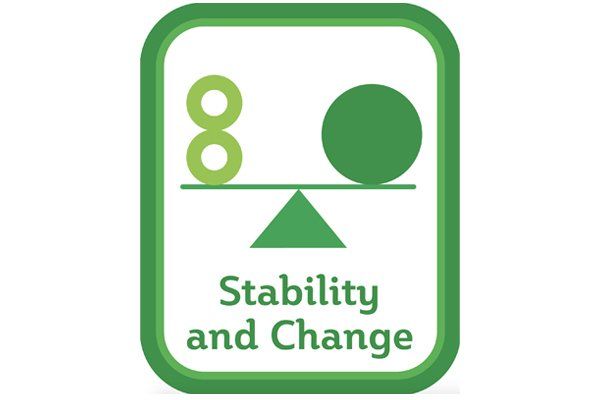Truth and The Great Replacement Conspiracy Theory
Subscribe Today!
The January 6th Capitol insurrection was a divisive moment in recent history that has scarred the country’s heart and soul. Changes in society have spurred many to believe in the great replacement conspiracy theory, yet what is it, really? Our host Bill Stierle and his co-host, Tom, discuss the events of January 6th and the surprising results of the research of Mr. Robert Pape on the insurrectionists. Bill and Tom analyze why the events of January 6th happened: Join in as they look at things from a different perspective and share their insights on these events.
---
Watch the episode here
We're going to talk about the January 6th insurrection from a different perspective. We're going to talk about an interesting interview with a researcher named Robert Pape. He did a lot of research that tries to get into the motivation of the January 6th rioters and the communication issues around that, among other things. Bill, maybe you can help set the table here a little more about that.
Tom, one of the reasons why you and I do this thing is that we step into difficult spaces that people will tend not to step into. I've even been encouraged not to take on certain topics because it's like, "Bill, you're going to get people to give you pushback." The answer is that's a little bit part of it. If you're going to be somebody that helps to resolve conflicts, you've got to be able to step into the conflict with some confidence that you can sort out and support both parties during the conflict. There's a certain amount of courage that I and Tom need to cultivate. We might say the "wrong thing" or the thing that is going to cause a little bit of an edge to show up inside our readers. At least we're doing something to contribute towards some form of understanding or clarity or even something positive that can be done with a very tragic situation.
Tom and I got the opportunity to view this interview. This researcher interviewed and researched all of the different people who were arrested and charged with being in the Capitol building during that event. The trigger word is insurrection. That’s the observation. They were in the building fighting through law enforcement to get into the building. I was relieved that there weren't many people that died but I'm deeply saddened that so many people were injured. The people that did die were the ones that were trying to hold to the rule of law, “This is what protection looks like. This is what it's needed to be done here.” What Robert Pape found out was that the predominant demographic number were men between the ages of 35 and 55. They were business owners and CEOs from counties that were mostly blue counties. That was a little unsettling for me because the belief and the bias is, wouldn't it be coming from a red county? No, not necessarily. It's interesting.
I agree with both sides that the assumption for most would come from a red state like Texas or Florida or something. We forget how polar America is. Even in a blue state, Colorado is a blue state. By what, 5% or maybe a little more? Every blue state has a healthy number of red people in it. It may be counterintuitive but it seems logical to me that somebody who is on the red or Republican or conservative side of the political spectrum if they're in a blue state, there might be more things pushing their buttons to have them at a heightened level more so than if they're in a state where they're comfortable and where there are more people like them.
That's a good way to think about it. It's like, "I am tired of my county voting for or being a part of this way." Even the state of Oregon is going through this right now. A bunch of the counties on the East side of the state goes, "We don't want to be a part of Oregon anymore. We want to be a part of Idaho because that's our tribe. Those are our people. We don't want to be known with the identity of being with these other blue voters along the coast." It's unsettling because people's beliefs, biases and fallacies about their fellow human beings can be faced and talked through with a lot of compassion and empathy for the different viewpoints. Human beings have different viewpoints about stuff. The way democracy works is that you get those two different viewpoints. They do the best they can to have points of collaboration and cooperation about what would be best for the greater good.
What Mr. Robert Pape came up with during his research of those 500-plus people that he interviewed was there’s an inherent belief that each one of them was running in their consciousness that they as a person or as a group were being replaced. He called it the great replacement. If you're a business owner and a CEO, what are you being replaced from? You're an independent thinker. You're working hard as a business owner or a CEO. You're making the most money out of all the people that are working in your shop. You're also possibly getting taxed more than most people inside the shop, probably not from a percentage-wise but an amount-wise. That is unsettling. The problem has to do with, how do you grow a society or an economy so that there's equanimity that can take place. There is a balance between the needs of the few versus the needs of the many.
The communication and exposure of minorities and minority rights may not look like they're getting their fair shake because the saturation of the voice of the minority is we're talking about gays, transgender, African-Americans, Hispanics. All of a sudden, you're talking about these minority groups. The person is hearing the message minority but the fairness thing is a man is making $1 and a woman is making $0.77 or $0.74 on the dollar. Are we looking at the equal? What happened to equality in gender? This group is trying to talk its way up. This group is saying, "You're trying to get more." It's not more. It's trying to get equality, which is something that we as a nation struggle with.
The people that already have the helping hand up the ladder don't think that other people don't have the same helping hand, and they clearly don't, which is upsetting. By Robert Pape capturing this, he's such a good researcher. He did this same research in Bosnia, Iraq and Afghanistan. He's watched what makes people rebel and get invested in their thing. What I was hoping that you and I would get to is give him some solutions because regrettably, on his show, he didn't have any solutions for the great replacement. How do you talk to a person that is stuck in that mindset?
That was the surprising part of the interview and the disappointing part. He's done all this research. He's someone that has a great deal of facts about who these people are, what they may be thinking or concerned about. When he was asked questions repeatedly by the interviewer, he didn't offer any conclusions. He didn't offer any useful solutions or even things that are going to help get toward a solution. He was almost like a computer that it's asked a question and it only gives you the fact of certain things. That was the missed opportunity. Maybe he's a person that focuses so much on the research and the data that he doesn't like to draw conclusions.
It also could be outside of his awareness and consciousness about what to say or do because he doesn't do my job, which is the high conflict mediation part. He doesn't step into the fight. He'll describe the fight. He'll give me the research and say, "You may want to touch on these points here. This is where it's coming from. I don't know how you're going to get through this because it’s a bit of a storm over there.” How do you talk this group off the ledge? They're talking themselves to walk them as well as the country over the ledge towards having a different kind of experience with one key leader and the semblance of democracy. That’s the way Russia and China looks. They have their parliament but they're all in agreement. None of those people is going to speak up against either of those two regimes. Nobody is opening their mouth and saying, "We're doing this but there's a better way." The weird part about it is that there's one thing that I find great about America. We do protect our innovators somewhat with our intellectual property laws. Other countries don't do that. They don't protect it. It's like, "So what? We'll steal your idea and we're going to make it over here cheaper." You know more about this than I do.
No question. America values intellectual property and that type of innovation. America, in general, gives business owners and entrepreneurs very special treatment. If you are in any way a business owner, entrepreneur, investor, anything like that, you get all kinds of special treatment. You get lower taxes as a business when you do research and development, when you invest in intellectual property, when you innovate and create something. You get a monopoly on it for a period of time with a patent. The American system wants the small business owner and the entrepreneur to build businesses. They're willing to give you a pass on a lot of things, a lot of advantages, tax-wise and other ways to do it because they know what business owners and entrepreneurs do is inherently risky. They're taking chances. That always surprised me a little bit about all of these.
A large portion of the rioters on January 6th at the Capitol were business owners and CEOs. I know one of them. You and I each know one of them who was there. We talked about it in a previous episode. One of the things that Trump's followers get upset about is our border, the immigration issue, and not wanting people to come into the country, not to have these open borders. I’ve always found it strange for CEOs and business owners that to somehow slow the volume of people coming into the country would be such an important issue to them. One thing every business needs and one of the goals they're looking for is growth. How do you get more growth, have more people that need to buy things and more people to sell things to? For many US corporations, the more people in this country, the better. That always surprises me that that was one of the hot-button issues for many CEOs.
Low-cost employment and low-cost workers are other features. They're paying into the system that they're getting nothing out of it. They're paying into it to be here and to have the opportunity because we create opportunities for that to take place. The thing to wrap our noggin around and I'd like the readers to wrap their noggin around is the great replacement, the fear that I'm going to be replaced is more a narrative about the need for identity, respect and stability. I want to slow down change because I don't want change to take place. I want certainty about certain things. I want my version of fairness. My version of fairness might mean that because I'm doing all this work, I don't want to pay taxes. I'm a job creator. The thing is many times, the person is not a job creator at all. They're not interested in helping the entire community or the entire system to work or make a difference. They're not doing that. There isn't enough bandwidth for things that we used to have in the '50s, '60s and even in the '70s like volunteerism. Where is that?
If people are doing two jobs, the water's up to here, and you're trying to tread water, you have no room to volunteer and get back to the community with your time, energy and wisdom. There's no room for it. These folks that are stuck in the idea and the belief of the great replacement, it's in alignment with their belief but is not in alignment with a certain reality of things like equanimity, having enough money to buy things, which will stimulate an economy. You can only press wages down so much before the person goes like, "What's the point?" That becomes unsettling because fairness doesn't look like fairness. Fairness looks like cheating. As soon as you start thinking that, in order to avoid the great replacement, I need to cheat. That's my version of fairness. All of a sudden, we're in the middle of trying to sort through whether or not the election was done or not with the number of votes just because a former leader said it wasn't. We're going to believe him.
There are two different narratives of cheating that are going on in America. You have the former president and the big lie which he started even before the election saying, "If I lose, the election was rigged." After the election, he said the big lie is he won and there was so much voter fraud. That's the only reason that Biden is now president. On the other side of it, you've got the more liberal political spectrum looking at how Republican legislators across the country are passing all these bills regarding voting that are restricting the vote. They're being labeled as cheaters, trying to cheat and prevent people who are not like them from voting so that they can stay in power. These are two different cheating narratives and beliefs going on in America right now. I know people on both sides, polar opposite sides of these things. They each are in disbelief that anybody could see things the opposite way that they do.
I feel disheartened and I know you feel disheartened too about the amount of doubt and skepticism that it takes to cultivate a brain over here. Our brain works in a way that if our need for truth and trust isn't met, we feel doubtful and skeptical. It goes back to one of our earlier episodes about the flat Earth mindset. All you can see is where your eyes can go. Therefore, if I walk outside my house, I can easily make the belief that the world is flat because that's all that my eyes see. All I can see is what is happening in front of me. I don't have a larger view about what is real or not.
When a body creates doubt and skepticism, it'll fight for it. Now, I'm doubtful, skeptical and angry. Why am I angry? My identity is not the way that I grew up in this town. I used to love growing up. As one of the insurrectionists would say, “My town used to be this way, but because of the housing, the immigrants, the number of people here, the economy of this city, I don't like San Francisco. I am going to march from San Francisco to Washington, DC, break in to stop the election because Trump was going to clean all this stuff up and my vote counts.” It does but it's not the same as the other people.
By the way, you may recognize that your city has changed because of the various growth and decay opportunities that have taken place inside the city. It's hard to get the person to realize that there's got to be a relationship between change and stability. There's got to be a relationship between certainty and trust. You got to cultivate that or otherwise, you'll get funneled down into a belief that you can't get your way out of. This conversation is significant. Getting the great replacement back in front of us, it's like what do you say to the person who believes that this city block got taken over and I've been replaced, or my town is not the way it used to be? I don't know, Tom, if you've been back to the house that you grew up in.
The neighborhood is somewhat different. Larger properties have been subdivided into much smaller properties. There are more residents than it used to be and houses are closer together. The demographic makeup of people in the community has changed. That's the reality. That's an inevitable change. Nothing stays the same. It's very interesting because human beings prefer stability. We prefer certainty and constancy, but change always happens. It always happens throughout life. When you're a child or adolescent, we only give them so many new things to be exposed to or be responsible for at a time. Slowly, incrementally over time, as we go through life, more responsibilities are heaped on you and more realities of life. You can't do it all at once or you'd go insane.
That would be unstable if you're going through change after change, or let me make it worse for us, it’s text after text or cell phone after cell phone. We're at a rate of change that is disturbing. Therefore, if I am a person that would like stability, predictability and certainty, would like my identity and self-worth to be the same, you know what I'm doing? I'm putting a hat on. What hat? Make America great again. I want to go backwards to where America used to be. Where was it? When I was a child and my parents had enough money to pay for things because the economy was more friendly to a middle-class person 30 years ago than it is now.
The economy was friendlier to the middle class. That's a true statement. The only problem with it is that people don't believe it. They think that people are lazy and they need to work harder. That's not it. The economy's moved, not the work ethic. The fantasy is that the work ethics move. That's not what's taking place. The amount of value you get for the work that you do has not been equal. It hasn't grown with the economy, the numbers, vote and everything. That's the thing. As soon as you try to go to efficiency and start cutting costs, all of a sudden, the people at the top will tend to be able to make much more than the people at the bottom.
This is always true. The whole thing is unsettling to come to grips with things changing and people want things to be the same.
You and I talk to business owners all the time about how to be present and be ready for change. Start adjusting, build your systems and be ready to change your systems every six months or every year and a half. That was the start of our conversation, “I need to make this change in this business.”
Before we started, I was talking to you about a change I need to make in my business and how to approach that. It always happens. It's inherently unsettling. People don't like change but then other people, the minorities, are wanting to have a little slice of the pie. They don't even want the whole pie. They're not trying to take over the world. They're just trying to get an opportunity.
Fairness, justice, equanimity. Just give me an even shot. Don't put three more bricks in my backpack that I have to carry around because I have a race and a gender that I do.
They're already coming from a country where they had a whole lot more bricks. They're just trying to get a few bricks off of their back here. I'm empathizing with the immigrant here.
I know that we will be able to talk about the great replacement, more solutions for it and how to speak to it so that the person can listen from empathetic and compassionate messages. Have them believe that they're not being replaced. They have the belief that the call to action is one of equality, not one of getting more than what they would like. We're in a turbulent time. That is for sure.
I appreciate this discussion about the great replacement. I like how we're not trying to completely understand that all in one sound bite, in one episode. As I was saying about people growing up, they get a little more understanding or responsibilities or awareness of things that they can handle. Even for me, it's important to set the table of the great replacement here because it ties into so many things that we're going to be talking about in the weeks and months to come.
Thanks for this conversation, Tom. It's been a good one.
I enjoyed it.
Thanks, everybody.
Important Links:
Love the show? Subscribe, rate, review, and share!








